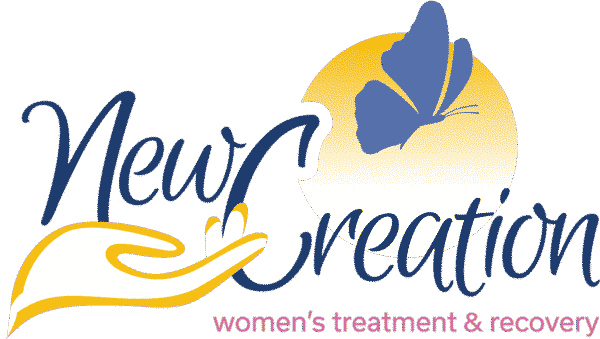Mental health challenges, like anxiety or depression, cause many challenging symptoms in a person’s life. For many people, these challenges co-occur with substance abuse and addiction. This combination is called a dual diagnosis. The combination of mental health and addiction challenges is unique for each person, and individualized treatment is vital in their path to healing both. Dual diagnosis treatment at New Creation Recovery offers individuals an opportunity to understand how each has impacted the other and how to move forward in their lives with the ability to maintain their mental health and recovery from addiction.
Dual Diagnosis
About 7.7 million adults struggle with mental health disorders and addiction, a dual diagnosis. Of the adults with substance use disorder (SUD), about 37.9% also have a mental illness, and of the 42.1 million adults with a mental illness, about 18.2% also struggle with SUD. Due to the complexities, it is often difficult to know which came first and how the specific causes impacted each individual.
A dual diagnosis is a general term that describes when a person struggles with both mental illness and addiction. Any mental illness can be part of a dual diagnosis, including bipolar disorder, anxiety, or depression. In addition, an individual can struggle with any addiction, including drugs or alcohol.
Causes of Dual Diagnosis
Every person with a dual diagnosis has a unique story. However, certain common causes create the combination of challenges of mental illness and addiction. For many individuals with mental illness, their symptoms are often hard to manage. However, stepping away from their daily life to heal is a challenge. As a result, many individuals look towards drugs or alcohol as a way to get through the day. Unfortunately, over time, they build a dependence on drugs or alcohol, resulting in physical dependence and addiction.
While compensation for a mental illness is common, a dual diagnosis can also begin with addiction. When an individual abuses a substance, their brain structures and functions are significantly impacted. This includes the neurotransmitters that affect mood. In addition, their cognition, thinking, and focus are influenced. As a result of these changes, many individuals with a history of substance abuse and addiction develop mental health challenges.
For some, these mental health issues will dissipate as they recover from addiction. However, mental illnesses can also develop and remain. An individual may already be at risk for mental illness and their use of a substance over time can cause them to develop a mental health challenge that they would not have without substance abuse.
Treatment for Dual Diagnosis
Every individual’s experience with dual diagnosis is unique. This includes the type of mental health challenges and addiction. However, effective treatment for a dual diagnosis often includes medications and behavioral therapies. Treatment at New Creation Recovery is individualized due to the nature of a dual diagnosis. The staff gets to know each individual and their needs and uses this information to create a treatment program that is effective and has lasting results.
Effective treatment for a dual diagnosis helps address both mental health and addiction. This is because they are intertwined in a person’s life. By addressing both aspects of a dual diagnosis, individuals learn how they have interplayed in their lives and what steps they need to take in order to heal.
Medications
There are a variety of medications used in the treatment of a dual diagnosis. Medications can be used to treat both addiction and mental illness. The medications used in the treatment of addiction are mainly used in the detox process. They help individuals get through this phase of treatment with fewer symptoms. In addition, they help clients to remain safe as they detox from substances.
Medications are also used to treat mental illness. The type of medication will vary depending on the mental health challenge. However, many medications help to regulate certain neurotransmitters that impact mood, energy, focus, and more. Working with a mental health professional is the safest and most effective way to find the right medication.
Behavioral Therapies
While medications can be helpful, much of what needs to be addressed with a dual diagnosis is behavioral. This means that an individual needs to learn how to make different choices. The specific changes necessary vary for each person. However, behavioral therapies help clients learn to care for their needs, manage stress, and communicate in a way that is healthy and helpful for their healing.
Many parts of addiction and mental health challenges are not under a person’s control. However, in treatment for a dual diagnosis, clients learn to take the reins in parts of their lives that will impact both their challenges with addiction and their mental health. Behavioral therapies help clients to understand patterns in their lives that result in poor mental health and/or substance use. With this support, clients have the opportunity to make changes to behaviors that are resulting in the continuation of their challenges with both their mental health and addiction.
When a client is struggling with a dual diagnosis, it is complex. At New Creation Recovery, we help clients heal from various dual diagnosis combinations. Our Christian dual diagnosis program helps our clients move at their own pace through a unified treatment program under one roof. We understand that every individual’s dual diagnosis is unique and offer individualized care that is client-centered and focused on long-term recovery from mental health and addiction. If you or someone you love is struggling with a combination of mental health challenges and addiction, we can help. Call us today at (877) 868-5730 to learn how our programs can provide you with the support and care you need to heal.



